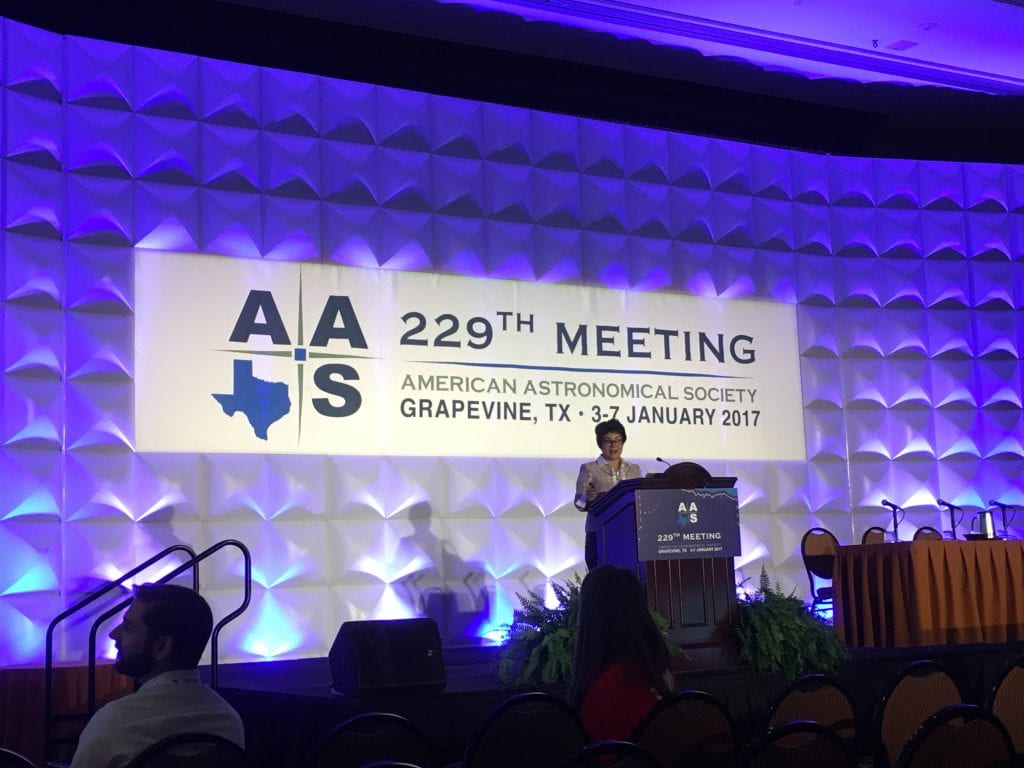 Things are looking up for physics junior Niyousha Davachi. She’s exploring another star system, theorizing with lagrangians (pronounced la-grahn-jians) and winning awards at conferences across Texas and the country.
Things are looking up for physics junior Niyousha Davachi. She’s exploring another star system, theorizing with lagrangians (pronounced la-grahn-jians) and winning awards at conferences across Texas and the country.
If there’s potential life on another planet, Niyousha may someday take part in finding out.
“Something that really interests me is the universe itself and how it was created,” she said. “That goes into cosmology so okay, what exactly happened at the beginning of time when the definition of time started?”
Last month, Niyousha won a physics award for best speaker at the Undergraduate Women in Physics Conference at Rice University for a project about exomoons which are celestial objects that orbit planets in other star systems.
Before that she presented at Lamar University and Baylor University for a speech about lagrangians which are mathematical equations that show the difference between potential and kinetic energy. And last summer she received the best student speaker award at the Mathematical Association of America’s annual MathFest in Columbus, Ohio for the same presentation. These accomplishments prove success for her practice and patience of trying to understand the universe.
 Her focus on exomoons uses relatively new evidence of an exoplanet dubbed by NASA in 2015 as “Earth’s bigger, older cousin” in a star system called Kepler452. The planet is named Kepler452b.
Her focus on exomoons uses relatively new evidence of an exoplanet dubbed by NASA in 2015 as “Earth’s bigger, older cousin” in a star system called Kepler452. The planet is named Kepler452b.
“We think it’s going to be a rocky planet and the star it orbits is the same type of star that we have,” she said. “It’s five times the size of the earth and it is said to be within the habitable zone of the star it orbits meaning it could potentially retain life.”
Her work involves determining if this super planet has any moons or not. She and her team, led by professor Zdzislaw Musielak, ran simulations for a given amount of time to that find out — and if they’re going to be stable. Stable meaning they’re not going anywhere or if they’re going to collide with something. The results can help astrophysicists determine what region to look for when they’re observing the night sky.
Niyousha plans to enroll in graduate school after completing her B.S. in Physics. She said she wants to use her knowledge to further build on her field of science. And wherever she goes, she’ll always admire the proficiencies of math and physics.
“That is really what I love about mathematics. It is so detailed, it is so strong — and if you say something is true you better have proof for it. Once it’s proven to be true, you have a good amount of confidence that okay, it’s true because you can track it all the way back to the beginning.”
